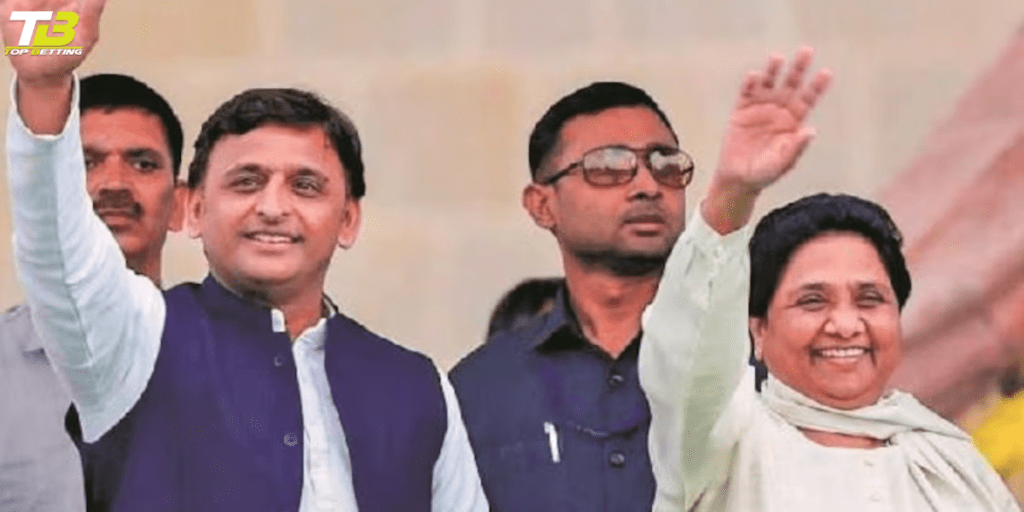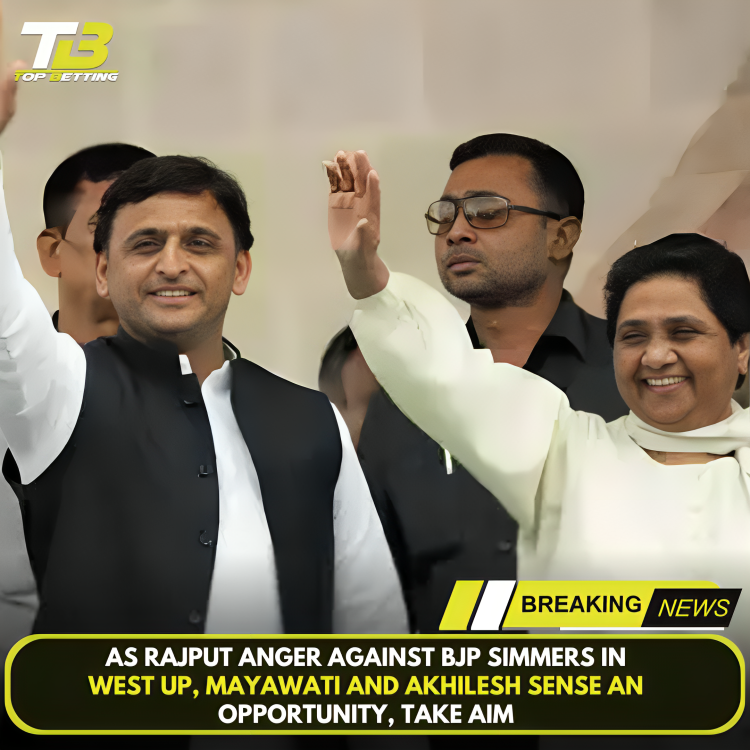
Rajputs anger against BJP, Mayawati and Akhilesh targeted
In the politically charged atmosphere of Uttar Pradesh’s west region, discontentment against the Bharatiya Janata Party (BJP) is simmering within the Rajput community. This anger has led Mayawati’s Bahujan Samaj Party (BSP) and Akhilesh Yadav’s Samajwadi Party (SP) to sense an opportunity to challenge the ruling party. The lack of representation for Rajputs in the BJP’s candidate selection has become a focal point for the opposition parties. This article delves into the reasons behind the Rajput anger, the tactics employed by Mayawati and Akhilesh, and the potential consequences for the BJP in the upcoming elections.
The Rajput Community’s Discontent
The Rajput community, also known as Kshatriyas, forms a significant portion of the upper-caste population in Uttar Pradesh. However, they feel neglected by the BJP, which claims to support their interests. The absence of Rajput candidates in the party’s ticket distribution for the upcoming elections has intensified their dissatisfaction. This sentiment has created an opportunity for the BSP and SP to exploit the BJP’s perceived indifference towards the Rajput community.
Mayawati’s Accusations
BSP president Mayawati, during an election rally in Ghaziabad, openly accused the BJP of ignoring the Rajput community. She highlighted her party’s commitment to providing representation to all communities and emphasized the inclusion of Thakur candidates in their ticket distribution. Mayawati’s strategic move aimed to attract Rajput voters by presenting the BSP as the party actively addressing their concerns.
Akhilesh’s Recognition of Kshatriyas
Following Mayawati’s lead, SP president Akhilesh Yadav acknowledged the presence of Kshatriyas at his rally in Gautam Buddh Nagar. By recognizing the community and expressing gratitude for their support, Akhilesh aimed to consolidate Rajput voters under the SP’s banner. He emphasized the political awareness of the Rajputs and their decision to back the SP in the elections.
The BSP’s Candidate Selection
The BSP’s candidate selection reflects their efforts to appeal to the Rajput community. In Ghaziabad, Nand Kishor Pudir, a Thakur, has been fielded as the BSP candidate. Similarly, Praveen Bansal, a Gurjar from the Other Backward Class (OBC), has been chosen as the BSP candidate in Baghpat. These selections signal the BSP’s commitment to providing representation to different communities, including the Rajputs.
The BJP’s Response
The BJP, aware of the simmering discontentment among Rajput voters, is attempting to address the issue. Dr. Mahesh Sharma, a Brahmin BJP candidate touring Kshatriya villages, aims to connect with Rajput voters and allay their concerns. The BJP’s strategy involves leveraging the influence of Thakur MLAs Pankaj Singh and Dhirendra Singh, both deployed to work among Thakur voters. The party hopes that these efforts will counter the opposition’s attempts to sway Rajput voters.
The Impact on BJP’s Candidacy
In the recently concluded elections in the west UP region, the BJP fielded only one Thakur candidate, Kunwar Sarvesh Singh, who unfortunately passed away. Among the eight constituencies going to polls on April 26, there are no Thakur candidates from the BJP. The absence of Rajput representation in these crucial seats may have repercussions for the BJP’s electoral prospects. Additionally, the dropping of former General V K Singh, a prominent Rajput leader, further adds to the discontentment within the community.
Opposition Parties’ Outreach Strategies
The BSP and SP have actively organized events and rallies to connect with the Rajput community. The BSP held a mahapanchayat to gain the support of Thakurs, while the SP organized Kshatriya sammelans and a panchayat in Gautam Buddh Nagar. These efforts aim to capitalize on the anti-BJP sentiment among Thakurs and present the opposition parties as viable alternatives.
BJP’s Counter-Narrative
Despite the opposition’s attempts to exploit Rajput anger, not all within the BJP are concerned. They believe that the BJP’s association with Lord Ram and its ideological alignment with the Rajput community will prevent a significant shift in Rajput voters’ allegiance. BJP leaders argue that the opposition is creating propaganda to acquire Rajput votes and that the impact may be limited to around 10% of Thakur votes. They rely on the support of Jats due to their alliance with the Rashtriya Lok Dal (RLD) to compensate for any potential loss.

Conclusion
The simmering discontent within the Rajput community against the BJP in western Uttar Pradesh has created a window of opportunity for Mayawati’s BSP and Akhilesh Yadav’s SP to challenge the ruling party’s dominance in the region. Both opposition parties are strategically targeting the lack of representation for Rajputs in the BJP’s candidate selection process to rally Rajput voters to their respective causes. This move aims to consolidate support from a significant voting bloc and potentially weaken the BJP’s stronghold.
In response, the BJP is actively addressing the grievances of the Rajput community to prevent further erosion of its support base. Efforts are being made to placate the disgruntled Rajputs and ensure their continued allegiance to the party. However, the upcoming elections in the region will serve as the ultimate litmus test, revealing the extent to which the Rajput anger has impacted the BJP’s electoral prospects.
The outcome of these elections will not only shape the political landscape in western Uttar Pradesh but also carry broader implications for the BJP’s strategy and standing among various communities across the state. It underscores the significance of community dynamics and representation in Indian politics, where parties must navigate intricate fault lines to secure electoral success.










